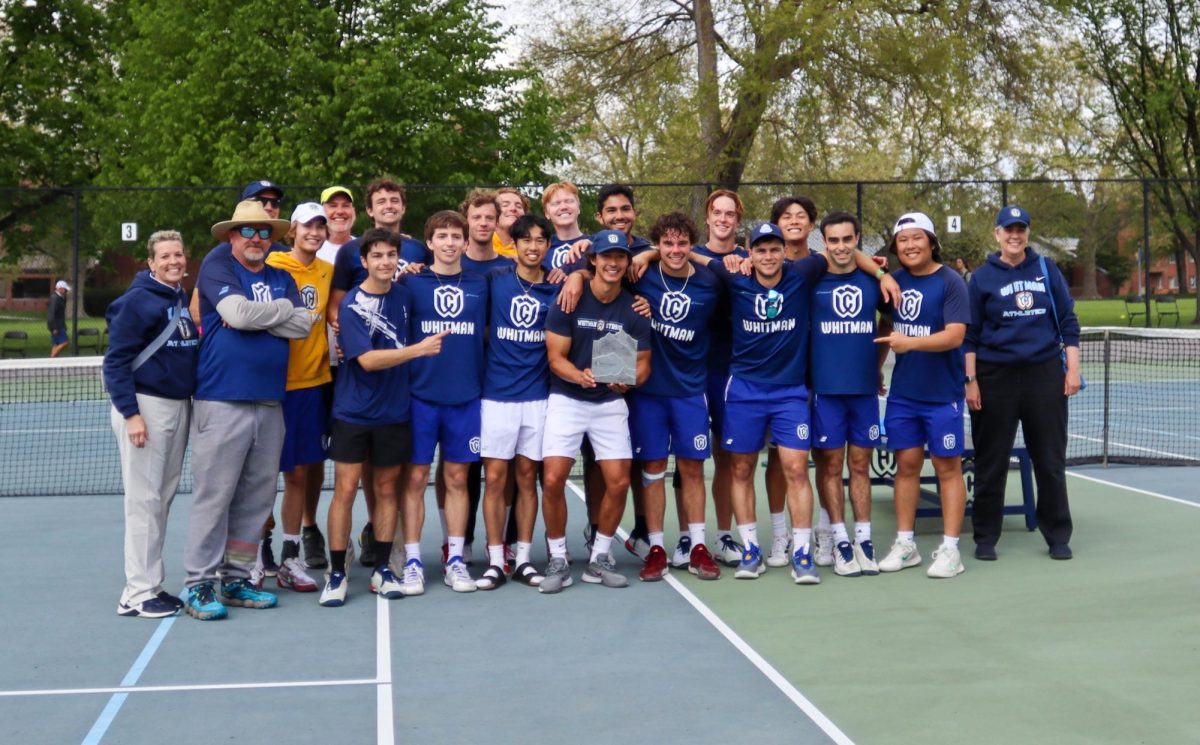
Heckling and athletics have always gone hand in hand, and Whitman College sporting events are no exception.
While Whitman hecklers certainly leave their mark on the games they attend, many students feel that heckling at Whitman has a distinctly conscientious character.
“The trick is being funny and distracting without being terribly offensive,” said junior Chris Bendix. “I think heckling at Whitman is just way wittier. Not to make a pun, but it really is. I’ve heard references to Machiavelli at a soccer game. You’re just not going to get that anywhere else.”
Junior Hayley Falk, a member of the Whitman cross country team, sees a common moral code present among Whitman hecklers.
“Whitman students are very clever when they’re heckling, but it’s clearly understood that you can’t make fun of people for things they have no choice in,” she said.
Bendix, himself a member of Whitman’s swim team, echoed this sentiment.
“We’re not going to make fun of gender, race, whatever, but shoot, we’re going to pick on you for your hair style, the shoes you’re wearing, your fake tan, the little things that aren’t terribly offensive but get under your skin.”
Part of this shared sensitivity stems from the fact that many members of the Whitman community know what it’s like to be on the other side of heckling. Senior Nic McDonald, who played on the Whitman men’s soccer team, said his experiences on the field gave him a sense of perspective he might not have had otherwise.
“Having been playing and hearing that, it’s easy to feel guilty,” he said. “Honestly, I never personally minded getting heckled, but when they heckled my teammates, that would bother me. Once you realize that your words actually have consequences, it’s a sobering experience.”
While hecklers’ methods may vary, their goal is always the same: to get inside the heads of opposing players.
Senior Reed Ferris said his time at Whitman has changed his heckling style for the better.
“Perhaps because the college environment is one that’s a little more mature, the crowd is a little more sensitive, you can’t just completely bash the other team,” he said. “I’ve found that it’s more fun to think of ways of heckling that aren’t inherently critical, but are just funny, which can distract the players even more. In high school it was a lot more blatant with a lot of profanity, but now I’ve realized that maybe it would be easier to get into a player’s head by saying unexpected things, like asking the goalkeeper what his musical preferences are: we did that one at the last game.”
Ferris, a history major, admitted to once rebuking an opposing soccer player for his lack of Machiavellian education.
“I just told him he had poor battle tactics and probably should have read ‘The Prince'” he said.
One subject that proves to be somewhat divisive in the Whitman heckling community is the issue of researching opposing players prior to games.
“I don’t do research, but they always have the rosters there at games, which is the best,” Ferris said.
While Ferris prefers to wait until game time to begin his heckling, he said some fans do their homework long before tip-off.
“A friend of mine, at the last game, had looked up the guy’s Facebook [profile], and the player had made this really funny rap song called ‘Fresh Steppin’, so we were yelling lyrics from that song at him.”
While Whitman fans do their best to be respectful with their heckling, they’re far from infallible.
“I think people try to keep it within bounds. You usually don’t know what they are, but you can always tell when someone crosses over the line,” McDonald said.
Ferris shared the same sentiment.
“Sometimes I’ll say something and immediately go, ‘oops.’ Sometimes I don’t put the limiting valve on what I’m saying. But when you do, it makes you get a little bit more creative too, which is always more fun.”
Despite occasional slip-ups, Bendix says one thing is certain: Whitman hecklers do it differently than students at other schools.
“I can imagine if someone from a different school tried to heckle at a Whitman game,” he said. “We’d probably have a serious conversation with them about what they’re doing, and how heteronormative and gender-stereotypical it is.”



